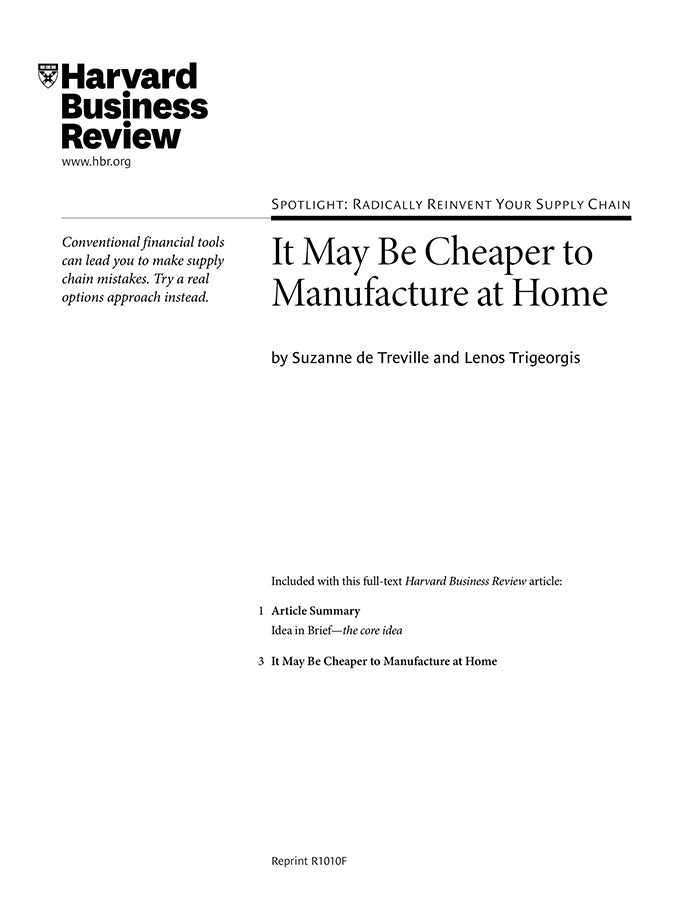It May Be Cheaper to Manufacture at Home
受取状況を読み込めませんでした
Conventional financial tools can lead to supply chain mistakes. Most managers use the discounted cash flow (DCF) model to help them make decisions such as where to locate a new manufacturing plant or whether to use a foreign or domestic supplier. But DCF typically undervalues flexibility-and as a result, companies may end up with supply chains that are low cost as long as everything proceeds according to plan but extremely expensive if problems arise. De Treville, of the University of Lausanne, and Trigeorgis, of the University of Cyprus, argue that you can avoid this pitfall by complementing a DCF analysis with a real options valuation. This technique lets you put a dollar figure on flexibility in the supply chain and helps you assess the value of having direct control. The authors explain how a real options approach helped the Swiss company Flexcell decide whether to locate a new plant at home or abroad. The CEO was able to show his board that the flexibility afforded by a factory near company headquarters would more than make up for the 15% per unit cost savings that would have been realized at a factory elsewhere. He also demonstrated that the costs resulting from a disruption to a Swiss plant would be much lower than those resulting from a disruption to a foreign plant. The decision to manufacture at home has paid off handsomely, especially in view of the uncertainties created by the current economic crisis.
【書誌情報】
ページ数:8ページ
サイズ:A4
商品番号:HBSP-R1010F
発行日:2010/10/1
登録日:2012/3/28


